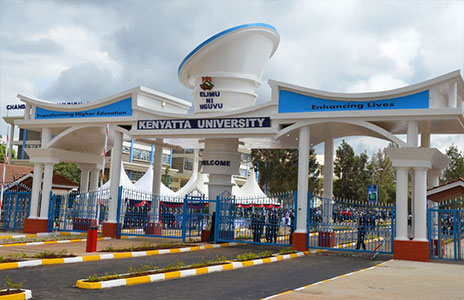
Community health is a medical specialty that focuses on the physical and mental well-being of people in a specific geographic region. This important subsection of public health includes initiatives to help community members maintain and improve their health, prevent the spread of infectious diseases and prepare for natural disasters.
Worldwide, many people continue to suffer from preventable communicable and non-communicable diseases. The need for capacity building in the field of health promotion and development has been compounded by the emerging and re-emerging health challenges/issues such as road traffic injuries, occupational health hazards, biotechnology, and genetic engineering, inequities and inequalities degree program aims at producing Community Health professionals capable of addressing health issues by responding effectively, developing, managing and evaluating health programs and proposing viable alternatives at the community levels.
This Bachelor of Science in Community Health and Development program prepares students to effectively plan, develop, implement and evaluate community health programs. Community health professionals work to improve the health and well-being of entire communities. Students in this program are exposed to the material in health behavior, community health research, biostatistics, epidemiology, health communication, and professional development.
Career Paths
- Outreach Specialist
- Program Coordinator/Manager/Assistant
- Public Health Educator
- Health Promotion Specialist
- Consultant (Research)
- Quality Safety Specialist (occupational health)
- Community Health Advocate
- Violence Prevention Specialist
- Worksite Wellness Specialist
- Health Education & Communication Specialist
Entry Requirements
- KCSE C+ (plus) mean grade with C+ (plus) in Biology/Biological Sciences, C (plain) in English/Swahili, and C (plain) in any two of the following subjects:
- Mathematics, Chemistry or Physics, OR Mathematics, Physical Science, Geography/Agriculture.
- K.A.C.E. 2 (two) Principle passes in relevant subjects
- Diploma/HND in Community Health Development, Clinical Medicine, Public Health, Human Nutrition, Pharmacy.
Objectives of Bachelor of Science in Community Health and Development
This Bachelor of Science course in Community Health and Development aims at producing health workers who are capable of addressing community health and developmental issues using a bottom-up approach from the community level.
The course also aims at producing graduates who can critically analyze community health problems with a view of suggesting and helping to implement solutions.
The BSc in Community Health and Development program is suitable for students who:
- Want to use social justice to advance health equity
- Aim to go to nursing school
- Envision themselves working in a health-related career
- Want a hands-on, skills-based academic program
- Want to gain professional skills for the working world post-graduation
What you will study
The BSc in Community Health and Development degree program is applied and hands-on. You will learn techniques to promote healthy lifestyle choices and improve the quality of life of individuals and groups using culturally competent techniques and methods. The Units covered are:
Year 1
- Communication Skills
- Introduction to Critical and Creative Thinking
- Entrepreneurship
- HIV/AIDs and Drug Education
- Social Work and Community Development
- Biochemistry I
- Systemic Human Anatomy and Embryology
- Medical Education and Ethics
- Medical Anthropology and Sociology
- Introduction to Medical Physiology
- Basic Life Support and Emergency Care
- Biostatistics
Year 2
- Biochemistry II
- Fundamentals of Demography
- Fundamentals of Environmental Health
- Introduction to Microbiology
- Introduction to Medical Parasitology and Entomology
- Nutrition, Health and Food Security
- General Systemic Pathology
- Principles of Immunology
- Health Education and Promotion
- Medical Virology
- Toxicology
- Basics of Pharmacology and Pharmacognosy
- Principles of Community Health
- Field Attachment I
Year 3
- Epidemiology I
- Biostatistics II
- Research Methods
- Fundamentals of Health Information Management
- Health Services Management
- Disaster Management
- Health Economics and Healthcare Financing
- Community Diagnosis
- Communicable Disease Control
- Non-Communicable Disease Control HCH 310: Solid and Liquid Waste Management
- Behavior Change Communication
- Field Attachment II
Year 4
- Epidemiology II
- Maternal and Child Health Programs
- HIV/AIDS and TB Prevention and Control Program
- Nutritional Programs
- Malaria Prevention and Control Program
- Reproductive Health and Family Planning Program
- Mental Health, Adolescent Health and Drug and Substance Abuse Program
- Ethical and Medical-legal Issues HEH 304: Occupational Health and Safety
- Gender and Health
- Fundamentals of Monitoring and Evaluation
- Health Project Management
- Research Project
Related articles
-

A Guide to Civil Engineering Degree and Diploma Programs in Kenya
08-Nov-2025 -

Electrical Engineering in Kenya: A 2025 Guide for KCSE Graduates
08-Nov-2025 -

Mechanical Engineering in Kenya: A 2025 Guide for KCSE Graduates
08-Nov-2025 -

Engineering Courses in Kenya: A Guide for 2025 KCSE Graduates
08-Nov-2025 -

Education Pathways in Kenya — From Basic Education to Tertiary | College Guide
06-Nov-2025 -

The Bird and the Mirror: A Reflection on Identity, Perception, and Illusion
07-Feb-2025
Colleges offering Bachelor of Science in Community Health and Development

Ruiru
Kenyatta University

Kirinyaga Central
Kirinyaga University

Nyaribari Chache
Kisii University

Likoni
Turkana University College

Runyenjes
University of Embu

Kisumu Central
Great Lakes University of Kisumu

North Imenti



